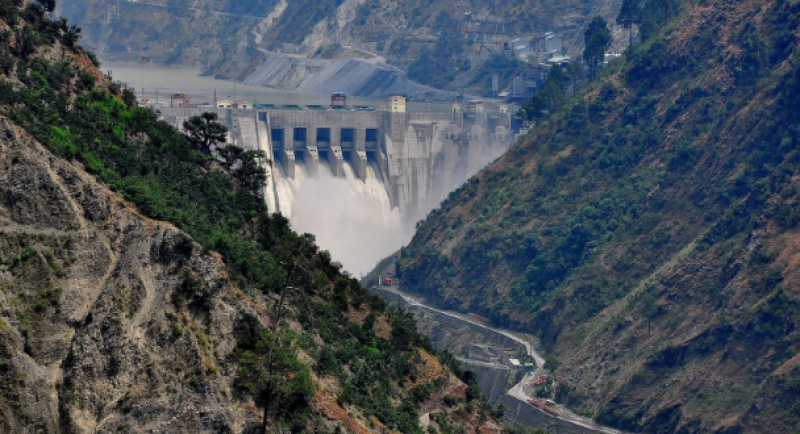Islamabad (Staff Report): The Foreign Office (has) said that the inauguration of Kishanganga dam by India without resolution of the disputes is a clear violation of the Indus Water Treaty.
FO spokesperson Dr Mohammad Faisal during his weekly news briefing in Islamabad on Friday said the World Bank had assured Pakistan it would make utmost efforts to resolve the Kishanganga and Ratle dams issue within the parameters of the treaty.
Dr Faisal stated that Pakistan had effectively raised the issue of Kishanganga project to resolve it according to the dispute resolution mechanism available as per the treaty.
Meanwhile, a four-member Pakistan delegation hold talks with World Bank authorities over India's repeated violations of Indus Waters Treaty in Washington.
According to details, the delegation, headed by Attorney General Ashtar Ausaf, had arrived in Washington on Wednesday to apprise the World Bank chief of Pakistan 's reservations over the issue and request the global financial institution to play its role as a guarantor .
According to reports, Pakistan officials hold discussions with the World Bank authorities over Kishenganga and Ratle and other 12 projects undertaken by New Delhi.
In talks, Pakistan asked World Bank to act as guarantor over Kishanganga Dam issue .
On Sunday, Pakistan 's Ambassador to the United States Aizaz Chaudhry remarked that Pakistan intends to consult with the World Bank over the Kishenganga Dam issue . He was addressing a seminar titled "Pakistan and Unites States A Lasting Partnership" on Saturday.
The statement came in response to Indian Prime Minister Narendra Modi inaugurating Kishenganga Dam project on Saturday amid protests from Islamabad, which says the project on a river flowing into Pakistan will disrupt water supplies.
The 330MW Kishenganga hydropower station, work on which started in 2009, is one of the projects that India has fast-tracked in the occupied territory, amid frosty ties between the nuclear-armed neighbours.
"This region cannot only become self-sufficient in power but also produce for other regions of the country," Modi said in the occupied state's capital, Srinagar. "Keeping that in mind we have been working on various projects here for the past four years."
Pakistan has opposed some of these projects saying they violate a World Bank-brokered treaty on the sharing of the Indus River and its tributaries, upon which 80 percent of its irrigated agriculture depends.
He further said water issues can lead to a 'very dangerous situation' hence it is necessary to resolve these problems in accordance with the IWT spirit.


